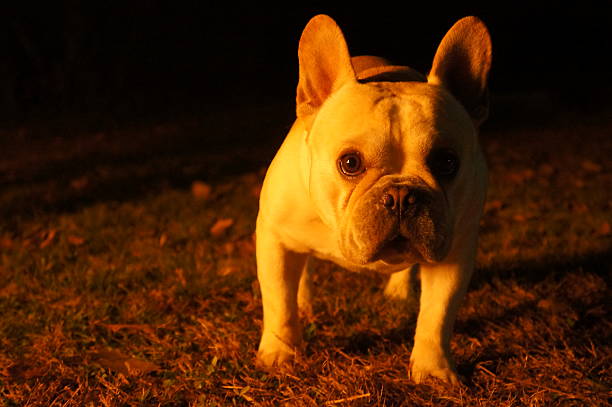Introduction:
Have you ever found yourself wondering why your beloved bulldog suddenly decides to unleash a chorus of barks in the dead of night?
As a fellow bulldog owner, I’ve pondered this question extensively. Bulldogs, with their endearing personalities and squishy faces, are known for their laid-back demeanor, making their nighttime vocalizations all the more intriguing.
In this blog post, we’ll delve into the fascinating world of bulldog behavior to uncover the reasons behind their nocturnal barking habits.
From ancestral instincts to modern-day influences, we’ll explore the various factors that may contribute to this behavior and discuss practical strategies for addressing it. So, grab a cozy spot and join me on this journey to unravel the mystery of why bulldogs bark at night.
You Need to Know Why Do Bulldogs Bark at Night?
Bulldogs, with their charming demeanor and unique personalities, are beloved companions for many.
However, their occasional nighttime barking can leave owners scratching their heads in confusion.
- Instinctual Heritage:
Bulldogs have a rich history as working dogs, originally bred for tasks like bull-baiting and guarding.
Despite their evolution into beloved pets, remnants of these instincts may linger.
At night, when the world quiets down, Bulldogs may feel a heightened sense of alertness, prompting them to bark in response to perceived threats or unfamiliar sounds.
- Boredom and Loneliness:
Bulldogs are sociable animals that flourish in the company of others.
When left alone for extended periods, especially during the quiet hours of the night, they may experience feelings of boredom and loneliness.
In an attempt to seek attention or alleviate their solitude, Bulldogs may resort to barking.
- Health Issues:
Due to their unique anatomy, Bulldogs are prone to certain health problems, such as respiratory issues or discomfort.
At night, when they’re more attuned to their physical sensations, Bulldogs experiencing pain or discomfort may vocalize their distress through barking.
- Territorial Behavior:
Bulldogs are naturally protective of their environment and family members.
During the night, when darkness envelops their surroundings, Bulldogs may perceive potential threats more acutely.
As a result, they may bark to assert their presence and defend their territory against perceived intruders.
- Anxiety and Stress:
Changes in routine, unfamiliar noises, or other environmental stressors can trigger anxiety in Bulldogs.
Also Read,
- Why do Dogs Jump on Strangers – Causes and Solution
- 7 Reasons Why Dog Pee on Bed (And Cleaning Process)
These feelings of unease may be heightened during the quietness of the night, leading to increased barking as a coping mechanism.
- Lack of Exercise and Mental Stimulation:
Bulldogs require regular exercise and mental stimulation to maintain their well-being.
Without adequate physical and mental outlets during the day, Bulldogs may become restless, and pent-up energy may manifest as nighttime barking.
- Reinforcement:
Sometimes, unintentional reinforcement from owners can reinforce nighttime barking behavior.
If Bulldogs receive attention, treats, or other rewards in response to barking, they may learn that this behavior leads to desirable outcomes, thus perpetuating the cycle.

- Fear:
Bulldogs may bark at night out of fear of unfamiliar sounds or situations.
- Excitement:
Bulldogs may bark when they’re excited, such as when they hear someone approaching the house.
- Hunger or Thirst:
If Bulldogs are hungry or thirsty at night, they may bark to communicate their needs.
- Temperature:
Extreme temperatures, whether too hot or too cold, may cause Bulldogs to bark for comfort or to signal discomfort.
- Old Age:
Senior Bulldogs may experience cognitive decline or physical discomfort, leading to nighttime restlessness and barking.
- Unfamiliar Environment:
Bulldogs may bark at night in a new or unfamiliar environment due to stress or uncertainty.
- Habitual Barking:
Bulldogs may develop a habit of barking at night if it has been inadvertently reinforced in the past.
Conclusion
Understanding the underlying reasons behind your Bulldog’s nighttime barking is crucial for addressing and managing the behavior effectively.
By identifying the specific triggers and implementing appropriate strategies, you can help your Bulldog enjoy peaceful nights and ensure a harmonious living environment for everyone.
Also Read,





One Comment on “14 Reasons Why Do Bulldogs Bark at Night?”